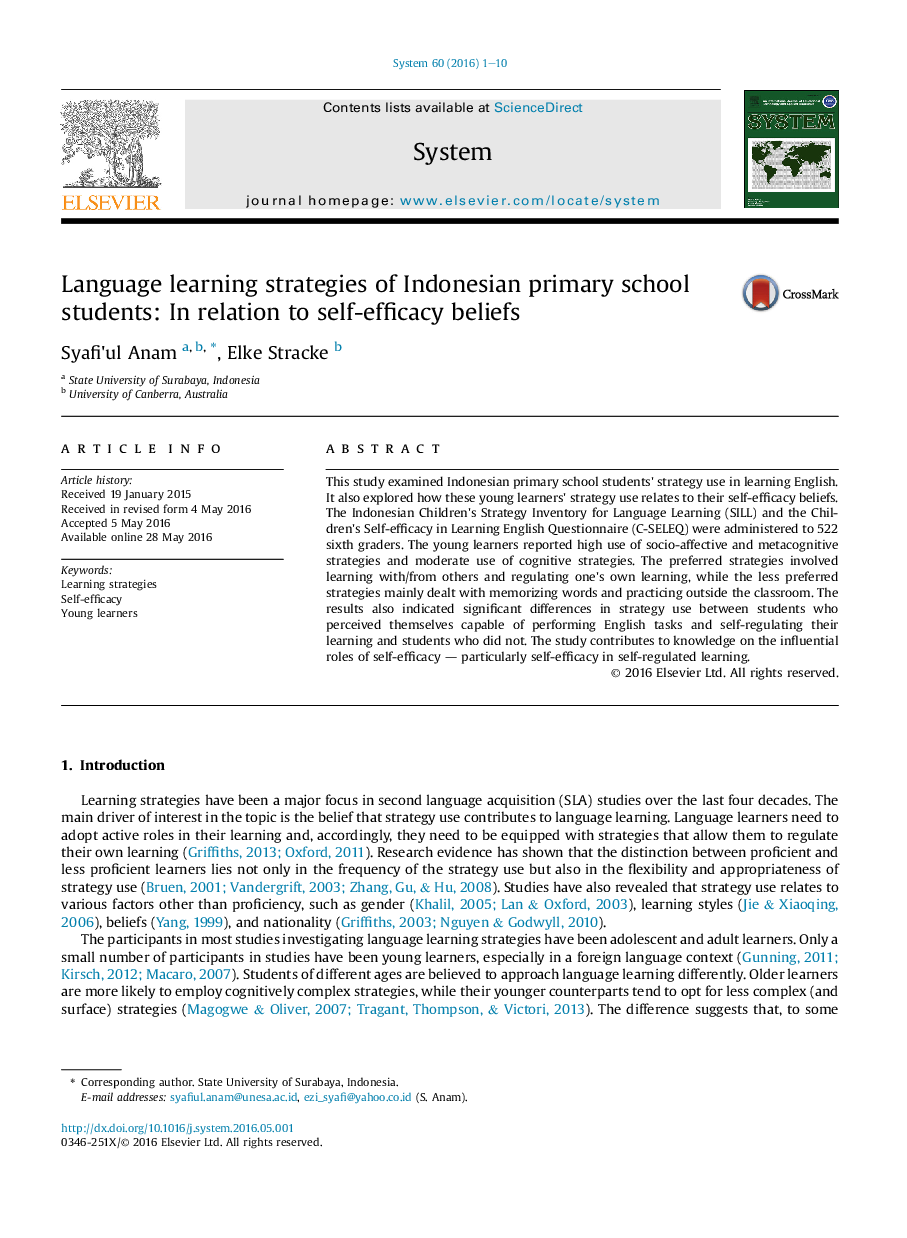| Article ID | Journal | Published Year | Pages | File Type |
|---|---|---|---|---|
| 372883 | System | 2016 | 10 Pages |
This study examined Indonesian primary school students' strategy use in learning English. It also explored how these young learners' strategy use relates to their self-efficacy beliefs. The Indonesian Children's Strategy Inventory for Language Learning (SILL) and the Children's Self-efficacy in Learning English Questionnaire (C-SELEQ) were administered to 522 sixth graders. The young learners reported high use of socio-affective and metacognitive strategies and moderate use of cognitive strategies. The preferred strategies involved learning with/from others and regulating one's own learning, while the less preferred strategies mainly dealt with memorizing words and practicing outside the classroom. The results also indicated significant differences in strategy use between students who perceived themselves capable of performing English tasks and self-regulating their learning and students who did not. The study contributes to knowledge on the influential roles of self-efficacy — particularly self-efficacy in self-regulated learning.
